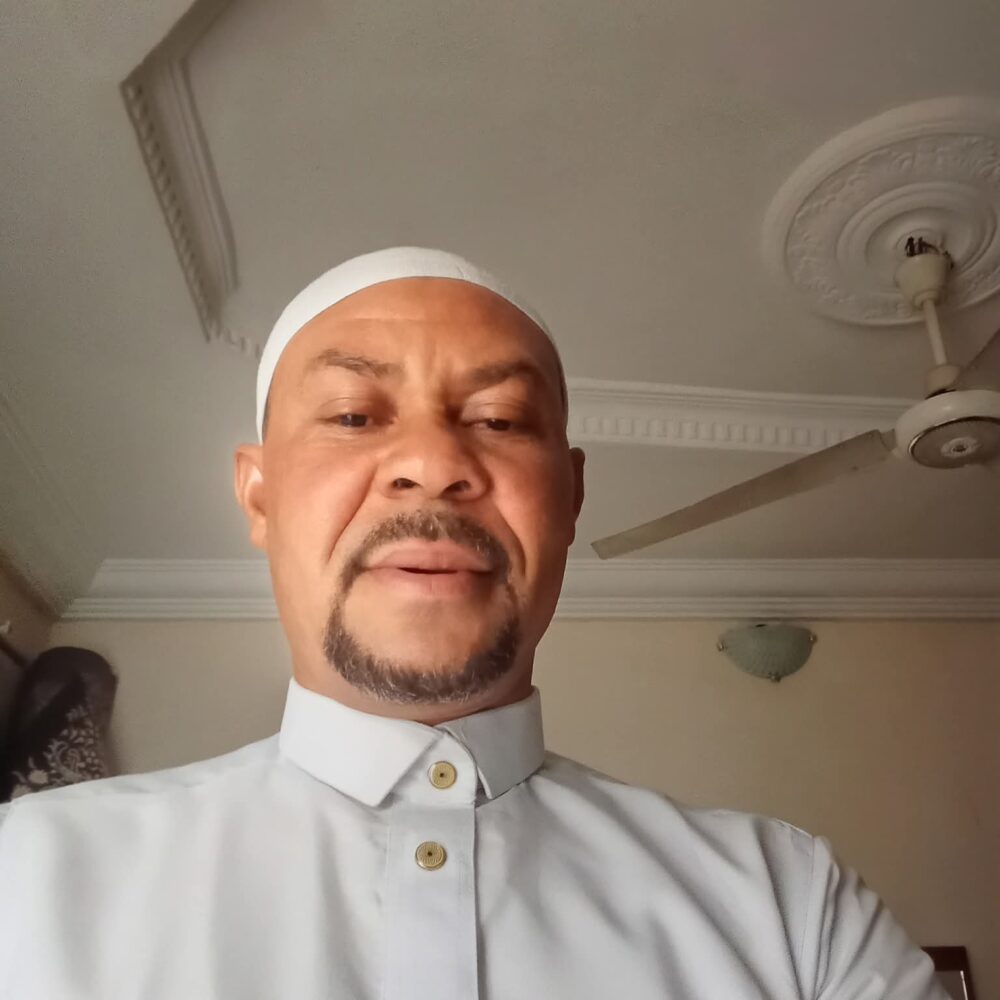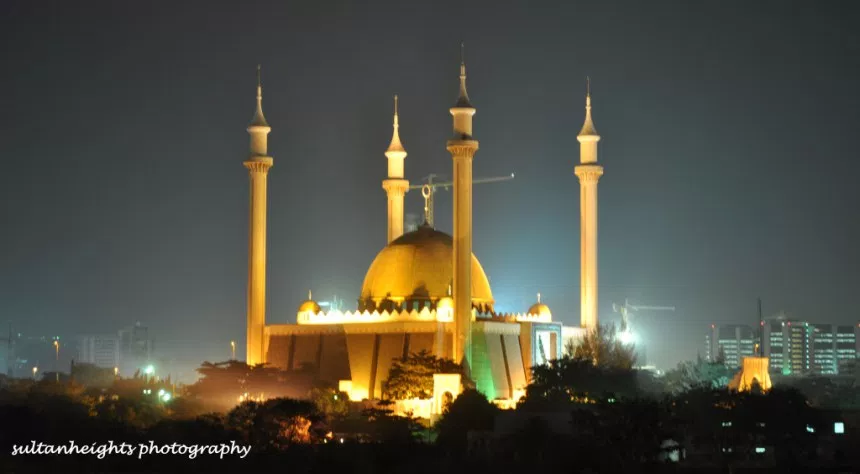In the name of Allah, Most Merciful, the Bestower of Mercy
All praise is due to Allah, Lord of all creation, and may the peace and blessings of Allah be upon our Prophet Muhammad, his family and all his Companions.
Dear brothers and sisters, sincerely speaking, tests, trials, tribulations, problems and challenges are part of every person’s life. However, to counter that, Allah has provided us a very powerful tool – and that is the tool of Du’a, or asking Allah for help and his mercy when we need it. And we need it all the time.
My great people, Du’a is the act of supplication or in simple words, it is our calling out to Allah, our Creator, our Lord, the All Knowing, and the All Powerful. Du’a is uplifting, empowering, liberating and transforming and it is one of the most powerful and effective act of worship a human being can engage in. It shows submission and a person’s need for Allah Almighty.
As human beings, our life in this world is characterised by fluctuating conditions, making us happy and sad. No one experiences perpetual bliss or misery. Life by its very nature is a test. Allah Almighty says:
“He is the One (Allah) that has created Life and Death in order to test who amongst you is best in conduct.” [Qur’an, 67:2]
Pleasant and favourable conditions demand us to be grateful and humble or adverse conditions require us to be patient and to seek Allah’s help and assistance.
As Believers in Allah we ought to believe that every condition is a manifestation of the Will of Allah:
“What has passed us was not meant to befall us and what has befallen us was not meant to pass us. And assistance comes with patience, relief after affliction and ease after difficulty.” [Tirmidhi]
Our faith and belief is tested when we undergo difficulties and afflictions. These difficulties may be physical, emotional, financial and/or psychological. This is borne out by the following Qur’anic verse:
“Verily We will test you with some fear, hunger, and loss of wealth, life or the fruits (of your labour).” [Qur’an, 2:155]
These adverse conditions may at times be upon an individual, a family, a community or upon a large section of the Ummah as is the current case of Nigeria. Muslims believe in Islam and making supplication or Du’a before Allah Almighty is what they consider as a weapon in their hands to solve their problems. Prayers or Du’a are panacea for the present problems facing the Ummah today. In Hadith we find that the Noble Messenger of Allah (Peace be upon him) came across a community of people going through a tribulation and trials. He advised:
“Why don’t they supplicate (make Du’a) to Allah for assistance?”
The problem with us is that Du’a for us has become a ritual and a final resort after all the options and the means have been exhausted. Du’a, according to a Prophetic Hadith:
“Has the unique ability to change destiny.” [Tirmidhi]
All the Prophets of Allah (Peace be upon them), as we find in the Qur’an, resorted to supplications as their ultimate ‘weapon’ to solicit Allah’s help when all their efforts would fail while reforming nations in their respective hostile environments.
A very poignant example of this is the incident of the Prophet Nuh (Peace be upon him). Allah Almighty mentions the incident in the following words:
“The people of Nuh (Noah) denied and they belied Our Servant and said, ‘He is a madman’ and threatened him. He therefore supplicated (through Du’a) to his Lord (saying), ‘I am overpowered! Assist me?’ We therefore opened the gates of Heaven, with water flowing furiously. (And) We caused springs to gush out from the earth, so that the two waters met in a quantity that had been destined.” [Qur’an, 54: 9-12]
The above Qur’anic verses in the original Arabic language are very powerful and conjure up an image of vast volumes of waters gushing forth profusely from both the earth and the skies until the earth was waterlogged. All those who had ridiculed the Messenger were drowned in that deluge. We can safely say that the Prophets (Peace be upon them), in discharging their responsibility of calling toward the Creator, qualified for His assistance. And the action that motioned this assistance in favour of the Prophets (Peace be upon them) was that of lifting their hands in Du’a.
Respected servants of Allah, at the time of the battle of Badr, with the future of Islam under threat, when a small ill-equipped band of 313 Muslims faced an army of 1,000 well armed, the Noble Messenger of Allah (Peace be upon him) spent the entire night on the eve of the battle begging and supplicating unto Allah for His assistance and Allah Almighty the following day granted the greatest victory in the annals of Islamic history.
In another such incident, when Sultan Salahuddin Al-Ayyubi received news of the Crusader’s ships sailing toward them with reinforcements, he retired to the Masjid (Mosque) and spent the night in prayer, beseeching and begging Allah Almighty’s assistance. In the morning prayer, he told the pious men:
“Please make Du’a, so that the enemy ships left the shores carrying reinforcements.”
The people replied:
“Don’t fear, O Salahuddin. Verily the tears of the night have drowned the enemy ships.”
A short while later, news was received that the ships had sunk. Such is the power of Du’a which has been rightfully referred to by scholars as the ‘weapon’ of a believer.
In a Hadith, it is mentioned that:
“Du’a is the essence of worship.” [Musnad of Imam Ahmad and Tirmidhi]
In fact in another Hadith it is mentioned that:
“Du’a is worship.” [Sunan Abu Dawud]
If one ponders and reflects on the above Hadith one will realise that they are very clear, definite and absolute statements. How is it that we give so little attention to that described as both the ‘essence’ of worship as well as worship itself?
The reason for this is because we tend to look at the outward form of Du’a which, when compared to other’s acts of Ibadah (worship) is ‘less strenuous’ and ‘exertive’ in terms of time, place, language and physical exertion. While there are conducive and opportune moments when Du’as are accepted in relation to the above there are no restrictions or specifications on the act of Du’a. Du’a can be made at any time, in any place, in any language, when a woman is in her menses and also in a state of ceremonial impurity.
Du’a is the ultimate form of Ubudiyyah (Bondsman-ship) in that it is an expression of one’s total dependence on Allah Almighty knowing that every single condition — good or bad, happy or sad, benefit or loss, wealth or poverty — is exclusively in the hands of Allah Almighty and that He alone is the ultimate Causer of causes. With Him are the keys to His unlimited and unending treasures.
Du’a is that act which ‘connects’ the servant to his Master. The servant lifts his hands as begging bowls in an expression of begging as a beggar does:
“O mankind! It is you who stand as beggars in your relation to Allah, and it is Allah Who is Free of all wants, Worthy of all praise.” [Qur’an, 35:15]
In all humility, with an attentive heart, having full hope in his Creator, Maker, Sustainer and Cherisher, one attracts the gaze of mercy of the Master:
“Who feels shy in turning His servant away empty handed.” [Tirmidhi, Ahmad and Abu Dawud]
Dear brothers and sisters, if it is not in the nature of a mother to turn her child away empty handed no matter how disobedient a child may be, how is it possible that the One who is the most merciful and who has placed mercy in the hearts of all mothers turns away His servant, empty handed? How is it possible for the One Who:
“Becomes angry when His servants do not supplicate to Him not to be happy when they do?” [Sunan Ibn Majah]
Continuously turning to Allah Almighty in Du’a is a sign of one’s conviction in Him and the more one turns to Him, the more one’s faith increases. Du’a is a condition of the heart and conversation with one’s Maker in the language of one’s choice. A Prophetic Hadith says:
“Dua is a means of beseeching Allah Almighty for the fulfillment of all our needs no matter how mundane or insignificant as it may be; or significant as facing overwhelming odds in the battlefield.” [Tirmidhi]
In the vocabulary of Islam, there are no such words as impossible, unattainable and/or insurmountable. Du’a in times of ease is gratifying and engenders humility while at the same time it serves as an assurance of our Du’as being accepted in times of difficulty, according to Imam Tirmidhi.
Du’a in times of difficulty, accompanied by the shedding of tears is uplifting, invigorating, assuring, cleanses, refreshes and provides solace and relief to a broken heart.
In current times as individuals we are faced with so many tribulations and nationally, the Ummah, is faced with insecurity crises that, at times we cannot help but feel helpless, frustrated and depressed. In such times we have the choice of negotiating these hurdles all by ourselves or through voicing our dissent by petitioning the ‘powers’ that be or to utilise the most powerful ‘weapon’ at the disposal of every Believer — Du’a, and stand up before Allah Almighty and to petition Him for His help and assistance as He alone is the one who has power over everything and every situation.
May Allah send His Salah and Salam upon our beloved Prophet Muhammad (Peace be upon him).
And all praises and thanks are due to Allah alone, Lord of the worlds. May the peace, blessings and salutations of Allah be upon our noble Messenger, Muhammad, and upon his family, his Companions and his true and sincere followers.
Murtadha Muhammad Gusau is the Chief Imam of Nagazi-Uvete Jumu’ah and the late Alhaji Abdur-Rahman Okene’s Mosques, Okene, Kogi State, Nigeria. He can be reached via: gusauimam@gmail.com or +2348038289761.
This Jumu’ah Khutbah (Friday sermon) was prepared for delivery today, Friday, Rajab 14, 1442 AH (February 26, 2021).




